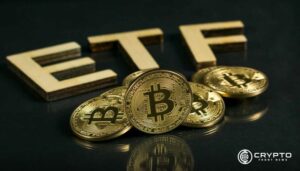- Goldman Sachs sees Bitcoin as speculative, with no threat to the U.S. dollar’s global dominance.
- Despite regulatory limits, the firm explores blockchain to enhance financial transaction efficiency.
- Strengthening U.S.-China economic ties and trade rebalancing is critical for sustainable global growth.
David Solomon, head of Goldman Sachs, believes Bitcoin is not a serious competitor to the dollar’s position as the world’s top currency. During a talk at Davos, Switzerland’s World Economic Forum, Solomon said Bitcoin acts like a financial tool but agreed that the US dollar runs the main worldwide financial networks.
U.S. Dollar’s Continued Global Influence
Solomon outlined Goldman Sachs’ stance on Bitcoin during his remarks, stating that Bitcoin garners interest among investors but does not threaten the U.S. dollar. According to Solomon, the dollar remains the cornerstone of the global financial system, ensuring economic stability and enabling seamless international trade.
President Donald Trump supposedly asked about Bitcoin’s reservation strategy, but the company handled the inquiry head-on. Goldman Sachs opposes Bitcoin because its price swings and erratic nature don’t fit with the company’s core values. Although Bitcoin continues to gain attention, the bank continues to function based on US dollar rules.
Despite regulatory limits, Goldman Sachs does not hold Bitcoin yet has made steady progress with blockchain development. Solomon believes blockchain should be used now to make financial transactions faster and easier overall. However, direct engagement with cryptocurrencies remains outside the firm’s scope under current regulations.
Ripple CEO and Crypto Policy Developments
Recent developments in U.S. crypto policy have drawn attention within the blockchain community. Ripple CEO Brad Garlinghouse, present at several high-profile inauguration events, expressed optimism about advancing blockchain adoption. Garlinghouse referenced collaborative efforts to strengthen blockchain’s role in U.S. economic strategies.
During his speech, Solomon addressed the need for strengthening economic ties between the U.S. and China. He cited constructive dialogue as essential for fostering growth between the two superpowers. Solomon noted that rebalancing trade agreements could significantly benefit the U.S. economy when executed thoughtfully.
Goldman Sachs continues its operations in China, with offices in key cities like Beijing and Shanghai. In 2021, the firm gained control of its mainland securities business, reinforcing its commitment to cooperative relations despite geopolitical tensions.
DISCLAIMER: The information on this website is provided as general market commentary and does not constitute investment advice. We encourage you to do your own research before investing.


